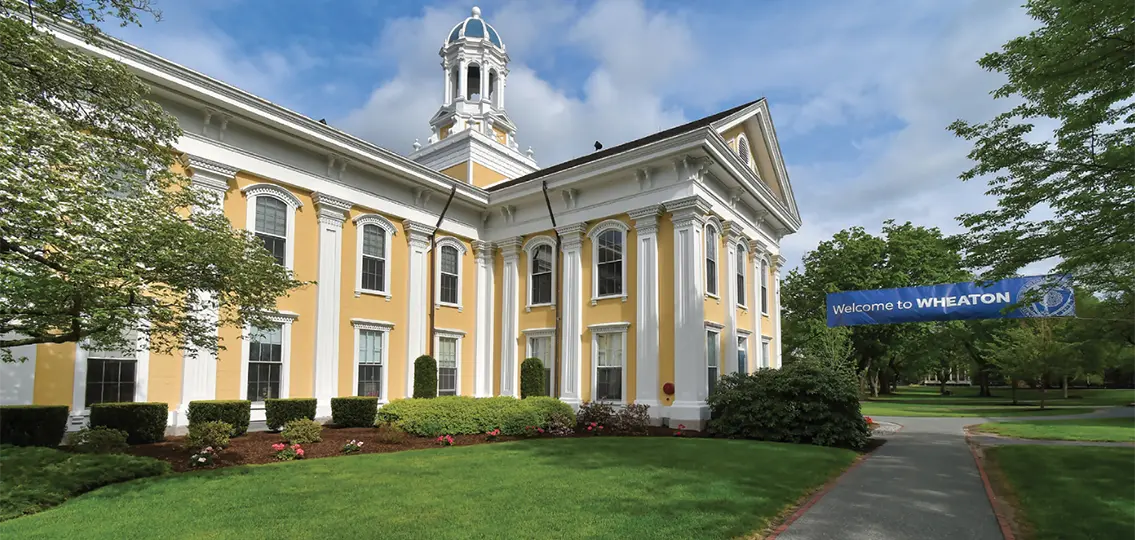Talk to students and faculty at Wheaton College, just outside Boston, and you’ll learn what sets this liberal arts college apart: highly personalized academics, an engaged community, and a serious commitment to ensuring students get the real-world experience today’s employers are looking for.
Like many undergraduates, Ryan Barrette logged a lot of hours in the classroom to earn his bachelor’s degree in chemistry. But Wheaton College also made sure Barrette got the real-world experience he needed to pursue his career goal.
That experience included an internship at Spaulding Rehabilitation Hospital, a teaching assistantship, and a year-long research project with a member of Wheaton’s faculty. “It was a great experience from a pre-med perspective,” says Barrette, who’s now in his second year of medical school at the University of Massachusetts.
Real-World Learning
When deciding on a college, students tend to look closely at things like academics, social life, and price—as well they should. But what they—and their parents—might overlook is how well a college provides opportunities for real-world experience before graduation.
Internships—and other types of experiential learning—help students explore possible career paths and develop the real-world skills (including soft skills) that today’s employers are seeking.
Wheaton College understands the importance of internships. As part of The Wheaton Edge, internships are a guaranteed part of the curriculum. Every student is eligible to receive funding for at least one internship. The college invests more than $1.2 million annually in out-of-classroom learning; students typically do their funded internship the summer between junior and senior year.
“We believe that providing students with the opportunity to try out in the real world what they’re learning in the classroom is really important,” says Renée White, provost of Wheaton College. “And with guaranteed funding, students don’t have to pick between employment and an unpaid internship.”
Ideas into Action
Josh Stenger, a professor of film at the college, recently led a program for Wheaton students that occurs each summer with a not-for-profit startup accelerator called MassChallenge, which provides funding for early-stage ventures. Wheaton students lead an in-house creative services agency, providing MassChallenge’s startups with everything from videos to front-end web design.
“They are doing hands-on work for clients in the real world and putting into action ideas they are encountering in their classes,” says Stenger. “It really puts a face on business for them.”
But its not just internships that give Wheaton’s students an edge. With more than 100 clubs and organizations, Wheaton students play a key role in shaping campus life. Small class sizes, more than 100 majors and minors, and an emphasis on innovative and interdisciplinary approach ensure Wheaton’s students are engaged and critical thinkers.
No surprise, then, that within six months of graduation, 98 percent of Wheaton graduates are employed, in graduate school, or doing fellowships or national service like Americorps.
Says White, “We’re developing a foundation from which they can go out into the world with the confidence to be successful in whatever path they choose.”
- Founded: 1834
- Undergraduates: 1730
- Student-Faculty Ratio: 10:1
- Average Class Size: 15-20
- Majors/Minors: 100+
- Campus Organizations: 100+
- Sports: 21 NCAA Division III teams
- Application Deadline: Early Decision/ Early Action: November 1, Regular Decision: January 1
- wheatoncollege.edu




